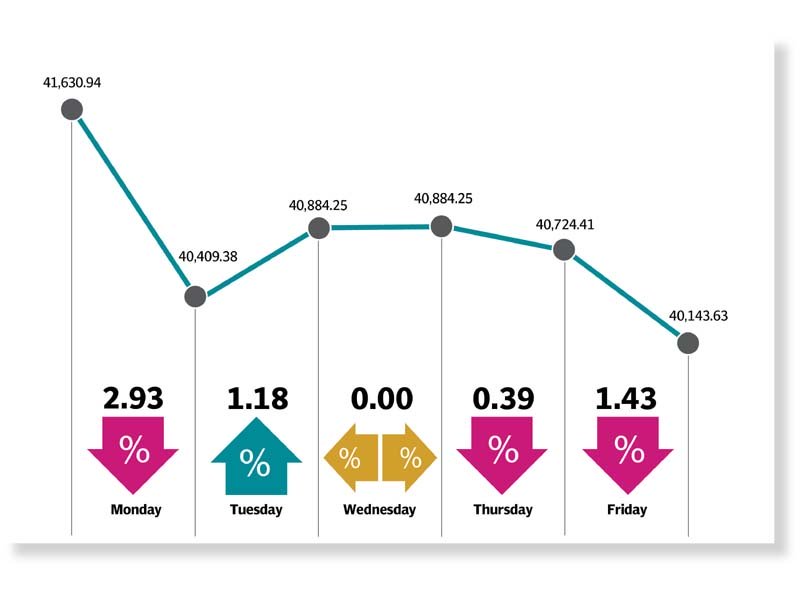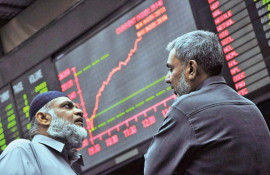
In addition, a lofty inflation reading for the month of January 2020 played havoc on investors' sentiments as the reading was higher than expectations.
These unfolding developments pushed the KSE-100 index 1,487 points lower to finish at 40,144 points.
"Correction phase seems to have set in with the KSE-100 Index trading in the red another week," stated a report of AHL Research.
"Aggravated inflationary pressure and turmoil in global markets following the outbreak of the coronavirus have been the primary reasons behind the continuation of the selling spree in the local bourse."
The week kicked off with the index nose-diving nearly 1,400 points in intra-day trading as investors weighed concerns on the high inflation reading.
The high inflation data sent the index into a tailspin, quashing hopes of the market participants for a cut in the benchmark interest rate in the monetary policy to be announced in March 2020.
Further adding to the woes, the global outbreak of the coronavirus continued to hammer global equities, the brunt of which was also borne by the domestic bourse.
The stock market rebounded in the next session and partially erased the losses owing to the Economic Coordination Committee to defer the decision for a hike in gas prices for the third time because a few meeting participants termed it detrimental in the wake of soaring inflation.
Following a break on Wednesday on account of Kashmir day holiday, the KSE-100 index once again entered the negative territory on Thursday and remained there for the rest of the week amid profit-taking with a handful of investors also chose to remain on the sidelines owing to absence of positive triggers.
A rise in PIB yield further eliminated anticipations of a cut in the benchmark interest rates hence pessimism prevailed at the bourse.
Although buying was witnessed in exploration and production stocks due to a rise in international oil prices, it was not ample to uplift the bourse.
Uncertainty over the outcome of the International Monetary Fund's (IMF) review of Pakistan's economy prior to releasing of the third tranche of the $6 billion bailout also sparked selling pressure and the week ended in the red.
"We expect the market to remain in the red following pessimism created from high inflation readings which have led to apprehensions over the rate cut which may not materialise soon," the AHL report said.
Participation remained dull as volumes dipped 11% week-on-week to 168 million, while average value traded decreased 1%, clocking-in at $45 million.
In terms of sectors, negative contributions came from oil and gas exploration companies (-376 points), commercial banks (-241 points), oil and gas marketing companies (-150 points), fertiliser (-140 points), and cement (-125 points).
Scrip-wise, negative contributions were led by Pakistan Petroleum (-158 points), Oil and Gas Development Company (-125 points), HBL (-104 points), PSO (-74 points) and Dawood Hercules (-57 points).
Foreign selling clocked-in at $14.2 million compared to a net buy of $8 million last week. Selling was witnessed in cement ($7 million) and exploration and production ($5.1 million). On the domestic front, major buying was reported by insurance companies ($13.7 million) and individuals ($7.7 million).
Published in The Express Tribune, February 9th, 2020.
Like Business on Facebook, follow @TribuneBiz on Twitter to stay informed and join in the conversation.



1732263441-0/BeFunky-collage-(81)1732263441-0-165x106.webp)
1732263755-0/musk-(3)1732263755-0-165x106.webp)












COMMENTS
Comments are moderated and generally will be posted if they are on-topic and not abusive.
For more information, please see our Comments FAQ